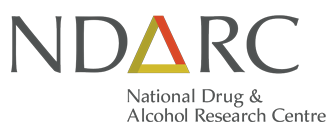
Professor Nicole Lee presented at the NDARC Webinar Series on Thursday 30 September 2021.
This webinar looked at the reasons why integration of AOD and mental health sectors has failed and outlines possible alternatives.
It almost goes without saying that addressing co-occurring alcohol and other drug and mental health issues is critical. But we have been attempting to bring these two areas together for more than 30 years without successful resolution. It is a challenge that has been well studied, and the problems are well understood, but very few programs translate to meaningful improvements in care.
In 2020, a report was developed for the National Mental Health Commission that explores the role of alcohol and other drug policy, services, prevention and supports in a successful mental health system. We asked whether alcohol and other drug use is a mental health issue; what were the good things and less good things about integration; and asked whether services should be integrated and whether there were alternatives.
In this presentation, Nicole presented findings from the report and explained a new framework for thinking about co-occurring disorders.
About the speaker
Professor Nicole Lee is Founder and CEO at 360Edge, one of Australia’s leading specialist alcohol and other drug consultancies. She is also Adjunct Professor at the National Drug Research Institute Curtin University, board member of Hello Sunday Morning and The Loop Australia, and a member of the Australian National Council on Alcohol and other Drugs (ANACAD) - Australia’s key expert advisory council to the Australian Government on drugs. She is well known for her work in alcohol and other drug policy and practice, and particularly known for her expertise in responses to methamphetamine problems and the related area of co-occurring alcohol and other drug and mental health treatment. She has spent three decades in clinical practice, research and evaluation, and translation of research to practice improvement in these areas.
Please note: readers and audience are encouraged to go to the presenter’s published paper for the most fulsome account of the research and its findings. You can read the relevant report here.
NDARC Webinars
- Overview
- News
- Our team
- References




